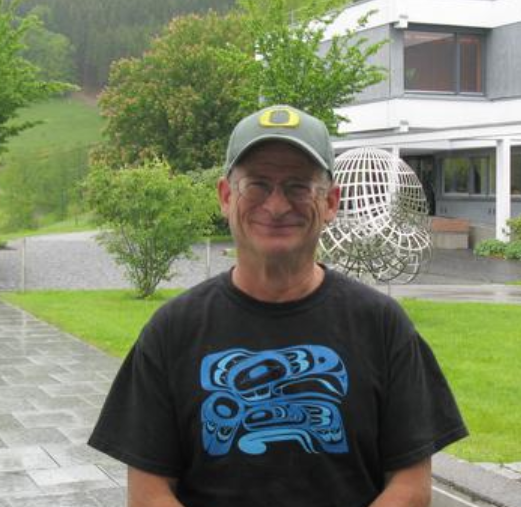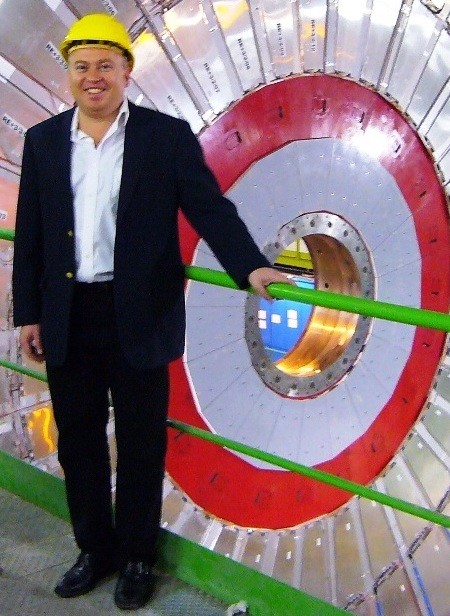
Journal Menu
► ▼ Journal Menu-
- Universe Home
- Aims & Scope
- Editorial Board
- Reviewer Board
- Topical Advisory Panel
- Instructions for Authors
- Special Issues
- Topics
- Sections & Collections
- Article Processing Charge
- Indexing & Archiving
- Editor’s Choice Articles
- Most Cited & Viewed
- Journal Statistics
- Journal History
- Journal Awards
- Conferences
- Editorial Office
- 10th Anniversary
Journal Browser
► ▼ Journal BrowserNeed Help?
Meet the Editors
23 June 2020
Meet the Editors | Interview with Prof. Dr. James A. Isenberg - Section EiC of “Gravitation”

Prof. Dr. James A. Isenberg, Associate Editor of the journal Universe. He is one of the pioneers in the study of the constraint equations in classical general relativity. The author of over 140 papers and 5 books, he has held visiting positions at Oxford, Paris, Potsdam, Stockholm, Vienna, and Canberra in addition to numerous locations in his native United States.
His many important contributions include completion of the solution theory of constraint equations on closed manifolds with constant mean curvature and, together with his collaborators, the first nontrivial results on the non-constant mean curvature case. He is currently focusing on the study of solutions to the Einstein constraint equations, on strong cosmic censorship and the nature of singularities in general relativistic models of the universe, and on the formation of singularities in Ricci flow and mean curvature flow.
1. What attracted you to scientific editing for Universe?
I have done scientific editing for two journals in past years: Physical Review D and Annales Henri Poincaré. I very much enjoyed doing that. My terms with these two journals ran out, so when Universe asked if I would be interested, I quickly agreed. To me, it is very important that top-quality papers in physics and mathematics be carefully reviewed and consequently be certified as correct and worth being studied by the community. While arXiv serves an important role, I still think it is crucial that excellent journals continue to play their role in determining which papers are correct and worthy of attention.
2. Can you tell us a little bit about your current research?
My current research projects include the following: a) studies of the effectiveness of the conformal method for constructing and parameterizing the space of solutions of the Einstein constraint equations with matter sources; b) development of a method for localized gluing of shear-free asymptotically hyperbolic solutions of the Einstein equations; c) studies of the nature of solutions of the Einstein scalar field equations in the vicinity of cosmological singularities; d) analysis of singularities in Ricci flow and mean curvature flow.
3. Which research topics do you think will be of particular interest to the research community in the coming years?
I think there will be continuing strong interest in determining if strong cosmic censorship and weak cosmic censorship hold for solutions of general relativity. There will also be continuing interest in determining if the Kerr black hole solution is stable given an appropriate opportunity.
4. Universe is an Open Access journal. How do you think Open Access impacts authors?
This is a difficult issue. Open Access has been strongly advocated in medical and biological research journals. Consequently, other areas of science and math have also moved in that direction. However, many researchers working in universities have been reticent about Open Access because of their limited funds for publishing. For me, it will be interesting to see how Open Access journals evolve in time.
23 June 2020
Meet the Editors | Interview with Prof. Dr. Greg Landsberg - Associate Editor of Universe

Prof. Dr. Greg Landsberg is a member of the team involved in the CMS experiment operating at the Large Hadron Collider at CERN (Geneva, Switzerland) and served as the Physics Coordinator of the CMS experiment at the time when Higgs boson was discovered. He is an author of a number of publications on collider phenomenology, including his pioneering work on mini black hole production at the LHC, which is among the topcite 1000+ articles.
Prof. Dr. Greg Landsberg conducts research in elementary particle physics, specifically, experimental investigation of the fundamental particles and fields of energy frontier accelerators. His main research activity is the search for new physics phenomena, including extra dimensions in space.
1. What attracted you to scientific editing for Universe?
I believe that getting involved in a publication process is an important way of ensuring high-quality and representative publications in one’s field. Over the years, I’ve authored many papers, both for myself and on behalf of the D0 and CMS Collaborations I’ve been a member of. I’ve also served on editorial boards of several journals, as well as been a referee for a number of them. Thus, I believe I understand the peer-review process quite well, both as a submitter and as a recipient of scientific papers. Consequently, I’m happy to offer my help to a relatively new journal in the field which targets a broad range of topics in the fundamental physics of the universe. I’m also particularly attracted by the Open Access policy of the journal, which I strongly support as the proper model for disseminating results of fundamental scientific research.
2. What are you hoping to achieve in your post as scientific editor?
My goal is to solicit new articles from leading experts in the field with the hope of increasing the interest in Universe journal within the scientific community and to improve the impact factor of the journal.
3. What kind of research do you look forward to publishing?
While my direct area of expertise is particle physics, in particular, the search for new physics phenomena, I’m interested in other fields also covered by the journal, and would like to see a balanced mix of topics covering major advancements in the studies of the fundamental properties of the universe.
4. Which research topics do you think are of particular interest to the research community at present?
I believe that LHC physics is still very interesting, specifically, the paradigm shifts in the way we do searches for new physics phenomena at the LHC and the impact that new precision measurements make on the overall picture of the universe. I also believe that the emerging field of gravitation wave detection is very interesting right now. Finally, I would like to see more articles on quantum sensing as a new experimental tool for various searches, and about novel analyses spanning more than one specific research area.



